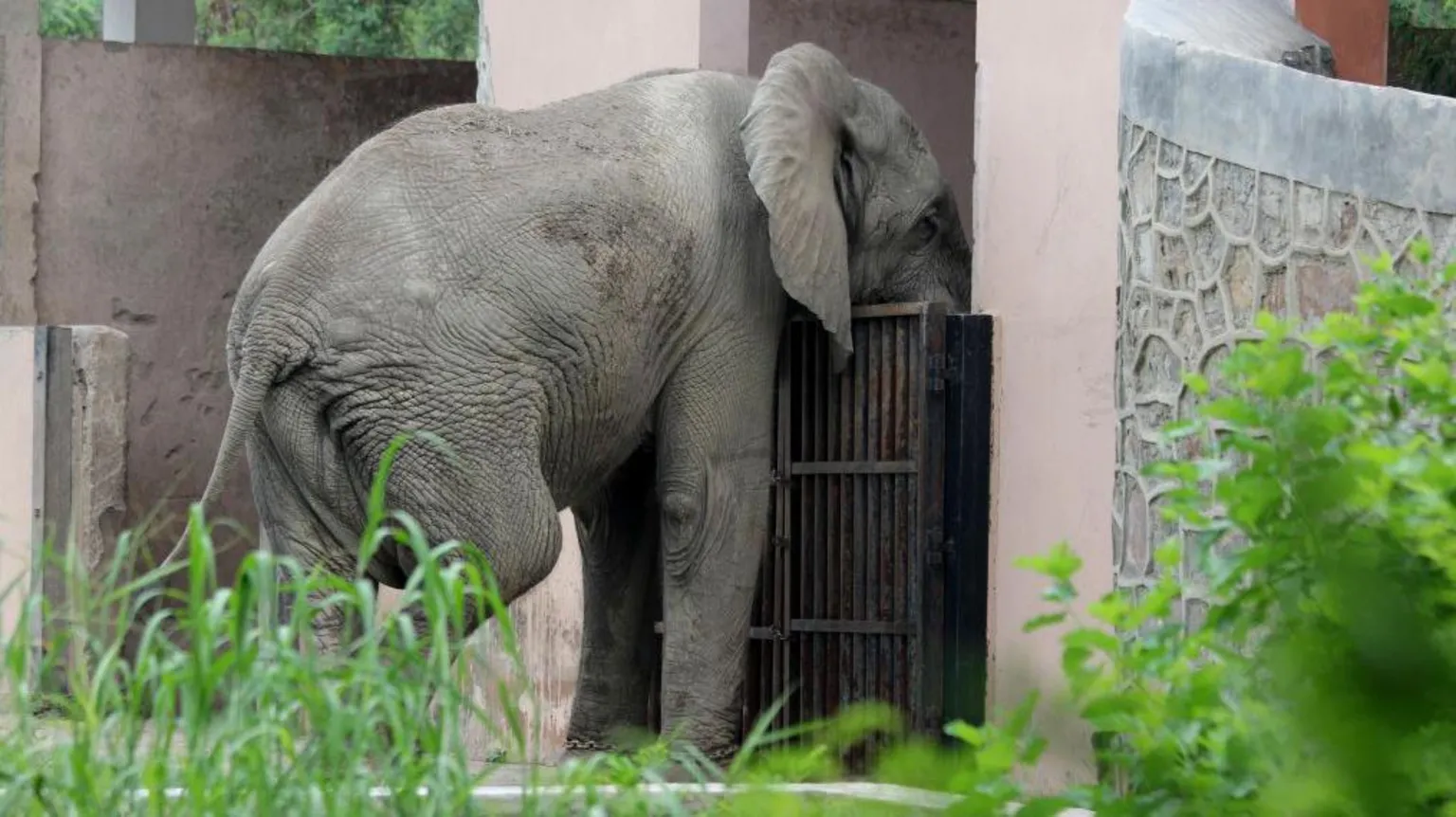Now Reading: Delhi Zoo’s Lonely African Elephant Shankar Died from Rare Rodent-Borne Virus, Officials Confirm
-
01
Delhi Zoo’s Lonely African Elephant Shankar Died from Rare Rodent-Borne Virus, Officials Confirm
Delhi Zoo’s Lonely African Elephant Shankar Died from Rare Rodent-Borne Virus, Officials Confirm

Delhi’s only African elephant, Shankar, who lived a life of isolation for more than two decades, died from a rare and deadly rodent-borne virus, zoo authorities have confirmed.
The 29-year-old male elephant passed away on 17 September, but the cause of his death remained unknown until now. An autopsy conducted by the Indian Veterinary Research Institute (IVRI) revealed that Shankar tested positive for encephalomyocarditis virus (EMCV) — a virus known to cause fatal inflammation of the heart and sometimes the brain in mammals.
Zoo director Sanjeet Kumar confirmed the findings, describing EMCV as an uncommon and highly fatal infection. The virus, spread through rodent faeces and urine, has no specific antiviral cure.
“It is a rare virus and I am not an expert on it,” Mr Kumar said when asked how the elephant might have contracted the infection or whether there was a rodent issue at the zoo.
According to IVRI officials, Shankar’s death marks India’s first documented fatal case of EMCV in elephants, though there may have been unreported instances in the past. The virus, first isolated in 1945 from a gibbon in Florida, has caused outbreaks among captive animals across the US, South Africa, China, and Australia, often affecting African elephants.
The MSD Veterinary Manual notes that EMCV spreads rapidly, attacking the heart and brain and often leading to sudden death in pigs, primates, and elephants.
Shankar’s story had long drawn sympathy from animal rights activists, who criticised the Delhi Zoo for keeping him in solitary confinement — in violation of a 2009 federal ban against housing elephants alone for more than six months.
He arrived in India in 1998 as part of a diplomatic gift from Zimbabwe to then-President Shankar Dayal Sharma, alongside a female companion who died just three years later. Attempts to house him with Asian elephants failed, and in 2012, he was moved to a separate enclosure where he lived alone until his death.
Activists repeatedly demanded that Shankar be relocated to a wildlife sanctuary housing other African elephants. A 2021 petition filed in the Delhi High Court sought his transfer, but the court dismissed the case two years later, directing petitioners to approach the wildlife transfer committee instead.
With Shankar’s death, India is left with just one African elephant — a male living in Mysore Zoo, Karnataka. Like Shankar, he too has spent years in isolation.
Animal welfare organisations have renewed calls for policy reforms ensuring that elephants — intelligent, social beings — are not subjected to solitary captivity.
As India mourns the loss of its last African elephant in the capital, Shankar’s death has reignited a long-standing debate over animal welfare standards in Indian zoos and the need for stronger oversight.



